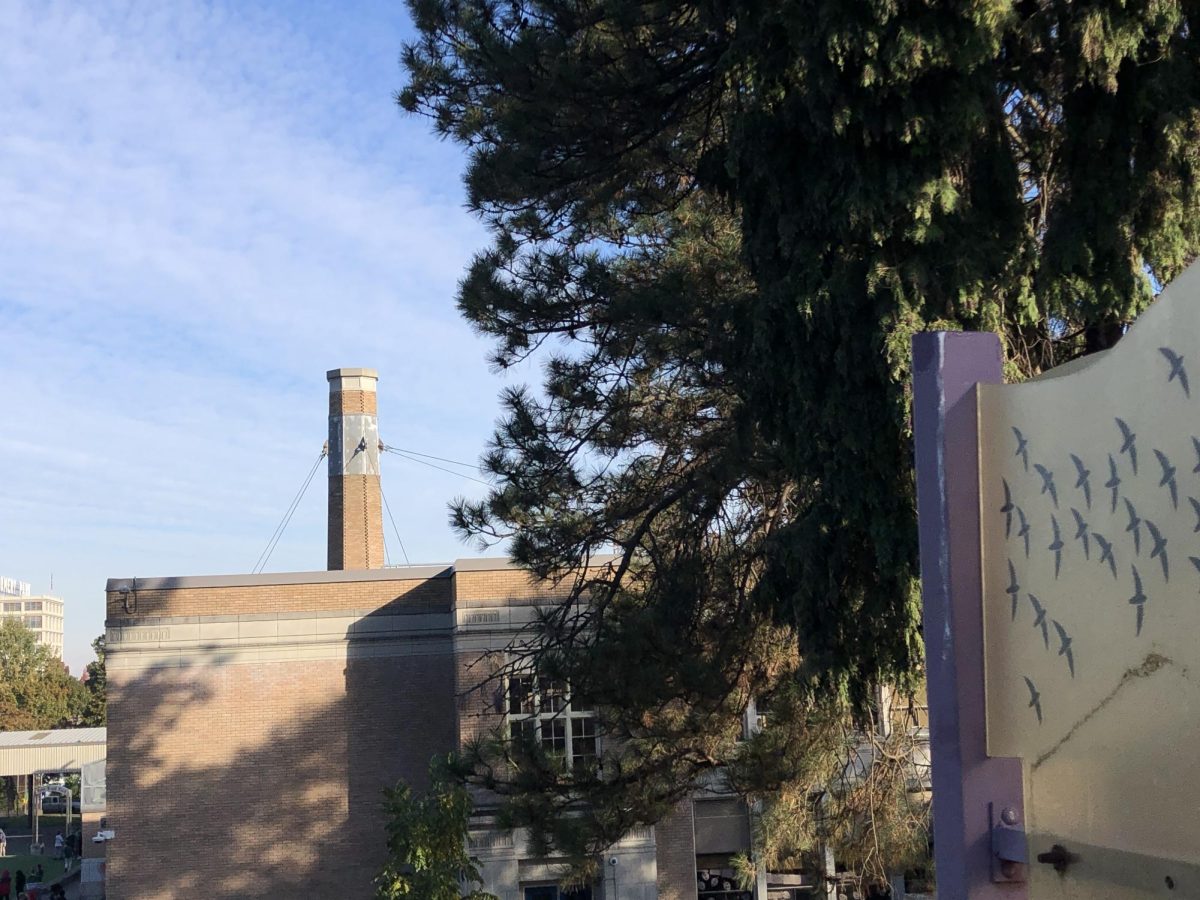Administration addresses antisemitic hate speech at Lincoln
In response to anti-semitic hate speech in bathroom stalls, the administration has taken steps to hold the individuals who are responsible accountable and to educate the community to prevent future incidents.
May 23, 2023
On April 19, Lincoln staff found a swastika drawn in a stall in a boys bathroom. Eight days later, staff discovered another swastika in a different boys bathroom. The swastika is used by Neo-Nazis and white supremacists as a symbol of antisemitic hate. Antisemitism is prejudice or hate directed towards Jewish people.
On May 19, an image containing hate symbols was AirDropped to students in two adjacent classes.
Principal Peyton Chapman wrote an email to staff, students and families regarding the incident.
“We want to thank all of the students who informed their teacher and administration immediately,” she wrote. “This incident helped us gather important additional information regarding incidents at Lincoln and we are moving forward towards next steps.”
In an interview after the April 19 incident, Chapman said that hate speech has increased across the district.
“The Greater Portland Jewish Federation has seen an uptick in antisemitism and other forms of hate to schools across the region, both private and public,” she said.
Chapman said that the Lincoln community has to call out and stand up against hate speech.
“We have to do better as a community,” she said. “It’s not going to be any one person that can fix this. We really need everyone to understand how damaging hate speech and targeted symbols of hate are.”
Administration has taken a multi-pronged approach to addressing the hate speech. On one hand, they’re ensuring accountability for the people responsible for the graffiti.
“We’ve got an [ongoing] investigation. We’re looking at the cameras and reading patterns; we now have teachers using sign-in sign-out sheets [to track trips to the bathroom],” Chapman said. “Our vice principals and staff who are male are going in and checking stalls to narrow the window of time.”
The administration is also working on taking preventative measures to ensure that students are educated on the impacts of all forms of hate.
“Because every year, 400 students are graduating and 400 new students come in, we have to keep educating ourselves and others,” Chapman said.
As a part of the efforts to educate the Lincoln community, administration planned a mini-lesson on antisemitism which teachers shared during second period on April 5.
Vice Principal Steve Pape explains the intent behind the lesson.
“I think our Friday lesson is not doing all of the things, but it’s at least starting with giving teachers some flexibility to know their own communities and to make some decisions about how to navigate that mini lesson,” said Pape. “At the very least, we want to kind of share technical pieces about what the school does and what the district does, as well as how to be an upstander.”
Hate speech is considered a level four discipline violation, the most severe disciplinary infraction.
“There’s a range of ways the district would respond to that. Restorative conversations could be a part of that, all the way up to expulsion hearings,” Pape said. “All of that’s within the realm of possibility. It’s hard to nail down [a clear result], because context matters. Without knowing who’s responsible at this point, it’s hard to know.”
In addition to the mini-lesson on antisemitism and hate speech, Lincoln plans to implement the No Place for Hate curriculum into the Lincoln community, beginning this spring and continuing into the 2023-24 year.
Pape explains that this framework isn’t new to Lincoln.
“[Lisa] Klein-Wolf had worked on that in the past, and then COVID happened and disrupted it. This is really a return to something that we had wanted to do before,” he said.
The program offers a broad and flexible guide to fostering inclusivity in schools.
“No Place for Hate is a great framework that encompasses all forms of hate. It basically says, our school is no place for hate,” Chapman said. “It’s student led, so we would have our leaders trained as a train-the-trainer model, so we get school wide language. messaging, mini lessons and activities.”
While the No Place for Hate framework is being implemented, Chapman urges students to stand up against hate.
“We need to make sure we’re educating our students and our community, and then empowering everyone to disrupt when we see any form of micro or macro aggression, racism or hate of any kind,” she said.
Note: The Cardinal Times published an article about an increase in antisemitism on January 14, 2023. It can be accessed here.




